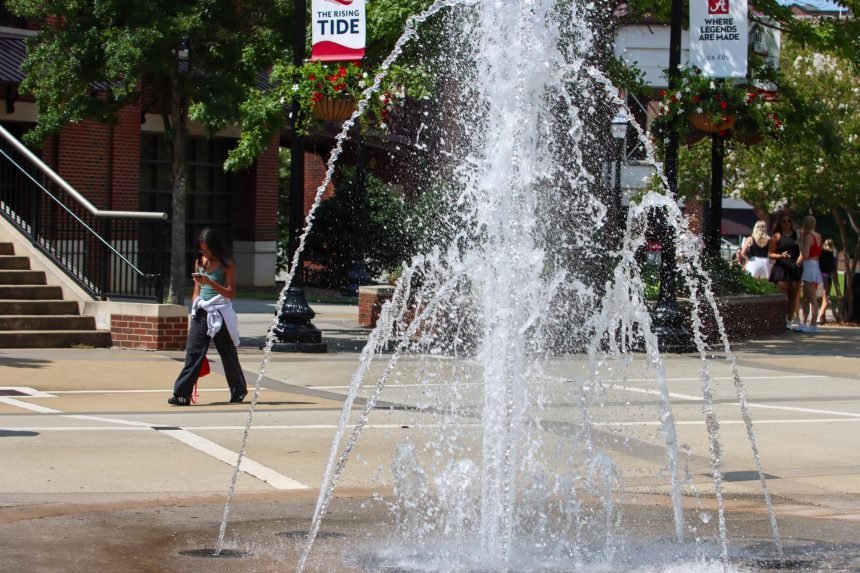The University of Alabama Hispanic-Latino Association hosted its third annual “La Gozadera” Hispanic Heritage Month event Wednesday. La Gozadera, loosely translated to English as “the party,” is the association’s biggest celebration of the year. The Student Center lawn was crowded with students, all gathering to celebrate and honor Hispanic heritage through food, music and dancing.
“Celebrations like these are important because they’re celebrations of traditions that have been passed down from our parents. I think that as the new generation, especially here at UA, we have to keep a lot of those traditions going, and this is one of the best ways to,” said Juan Baltazar, a junior majoring in management information systems.
The lawn was lined with tables representing other Hispanic heritage clubs, including the Association of Latino Professionals for America and Leading Hispanics in STEM.
A variety of Latino foods were free and exclusively provided by local, Latin-owned businesses. Plates of carne asada, pollo, rice and beans were served. For dessert, there were pan dulce, a Mexican sweet bread pastry, and paletas, Mexican frozen fruit popsicles. In addition to the free food and live dancers, a bounce house and photo booth were offered.
“Latino food really just stands out. I mean, a lot of these recipes are just recipes that our mothers and grandmothers have used. Bringing it to an environment like this really showcases Latino culture in the best way,” Baltazar said.
A DJ played Latin dance music throughout the night, encouraging attendees to dance and sing along with Big Al, who appeared as a special guest.
“One of my favorite parts of our culture is our music and dancing, so the fact that we were able to bring folklórico dancers here and have them perform is something beautiful that a lot of people would enjoy seeing,” said Gabriella Estrada, a junior majoring in biology.
Folklórico is a type of traditional cultural dance which represents cultural identity, history and storytelling. Originating in Mexico, folklórico is a symbol of cultural preservation and commemoration.
“Growing up here it was sometimes very hard for us to feel like we fit in,” said Naamah VanDyne, director of the dance group Las Flores del Sur, who were invited to perform for the event. “A lot of us shared the same feeling of embarrassment for our own culture because we didn’t really see it being reflected here. It’s so significant for us to be here and to share it.”











